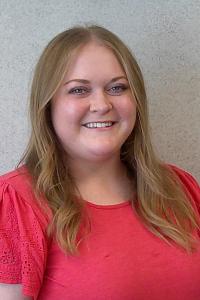Learn With Us
Get a feel for our community and our practice by completing a four-week clinical rotation here in Sioux City. Choose from five different rotations, open to students in good standing currently attending an accredited medical school (MD/DO).
Medical Student Rotation Requirements
These four-week rotations are open to medical students in open to students in good standing currently attending an accredited medical school (MD/DO). Students must demonstrate coverage for malpractice/liability from their medical institution. Students must show evidence of completion of a program on universal precautions ensuring the appropriate handling of blood, tissues, and body fluids during the past year. Students must also provide documentation of tuberculin and hepatitis B testing. Students are responsible for obtaining authorization of credit from their medical institution for the rotation.
For more information, questions, or to set up a rotation, please contact our Assistant Residency Coordinator.
Elly Johnson
Administrative Services Coordinator-Residency
Email: elly-johnson@uiowa.edu
Phone: 1-712-294-5024
Family Medicine Sub-Internship
The goal of the family medicine sub-internship is to provide a broad-based experience for fourth-year students interested in a career in family medicine. The sub-internship provides a wide variety of patients and cases to expose you to all aspects of family medicine.
You will spend most mornings at UnityPoint–St. Luke's or Mercy One Siouxland Medical Center, meeting with the in-house resident before rounds. You will round on your assigned patients daily and write notes and orders. Following work rounds, we have formal rounds with one of our faculty. After rounds, you will follow up on labs and studies for patients. You have the opportunity to work up patients in the ER, assist with deliveries, and complete circumcisions, depending on your interests. You will also attend morning reports with the residents between working rounds and formal rounds and may be asked to present on a topic during your sub-internship.
We have daily noon conferences at either our clinic, Mercy One Siouxland Medical Center, or UnityPoint–St. Luke's. Lunch is provided. Presenters vary and are composed of residents, faculty, and visiting physicians from the community or the University of Iowa. One afternoon each month is dedicated to didactics, often accompanied by skills labs.
The afternoon schedule is somewhat more variable than the morning schedule. You will spend various afternoons at the Family Medicine Center (residency clinic), working at the Maternal Health Clinic, and in the hospital doing admissions and patient follow-up. You will travel with a faculty member and resident to a local Native American Reservation for prenatal clinic on one Thursday afternoon during the rotation. You will have Friday afternoons off duty.
You will be on a family medicine night float shift for one week during the rotation in order to gain additional experience. During this week, you will work closely with the night float resident who covers adult medicine, pediatrics, and obstetrics. Housing may be available with advance notification.
Emergency Medicine Rotation
Students in the emergency medicine rotation will work at Mercy One Siouxland Medical Center, a Level II trauma center, and UnityPoint–St. Luke's, a Level III trauma center. You will arrange shifts with your preceptor based on the particular requirements of your medical school. While not required, students are encouraged to attend noon conferences with the residents. This four-week rotation is open to fourth-year medical students, with a limit of one student during each four-week rotation. Housing may be available with advance notification.
Family Medicine Rotation
This rotation is open to third-year medical students and emphasizes clinical decision-making skills in an outpatient family medicine setting. You will work with residency faculty and residents or community-based family medicine physicians. You are encouraged to attend a noon conference with the residents each day as well as the monthly afternoon didactic session. There is a limit of one student during each rotation. Housing may be available with advance notification.
The Medical Education Community Orientation (MECO) Program
The MECO Program is sponsored by the University of Iowa Department of Family Medicine in cooperation with the UI Carver College of Medicine. The project was developed to provide medical students with an early exposure to various health care delivery systems, helping them with important career decisions. It also provides the participating hospitals and practicing physicians an opportunity to become directly involved with medical students early in their training. The project is designed to broaden the base of medical education through a greater utilization of existing facilities and teaching personnel.
The goals and objectives of the MECO Progam are to introduce medical students to the scope of health care in the hospital component of a health care delivery system. The MECO Program should also orient the student to the community and the way in which the health care delivery system contributes to its structure and function. Housing may be available with advance notification.
For more information, questions, or to set up a rotation, please contact our Elly Johnson, assistant residency coordinator.
